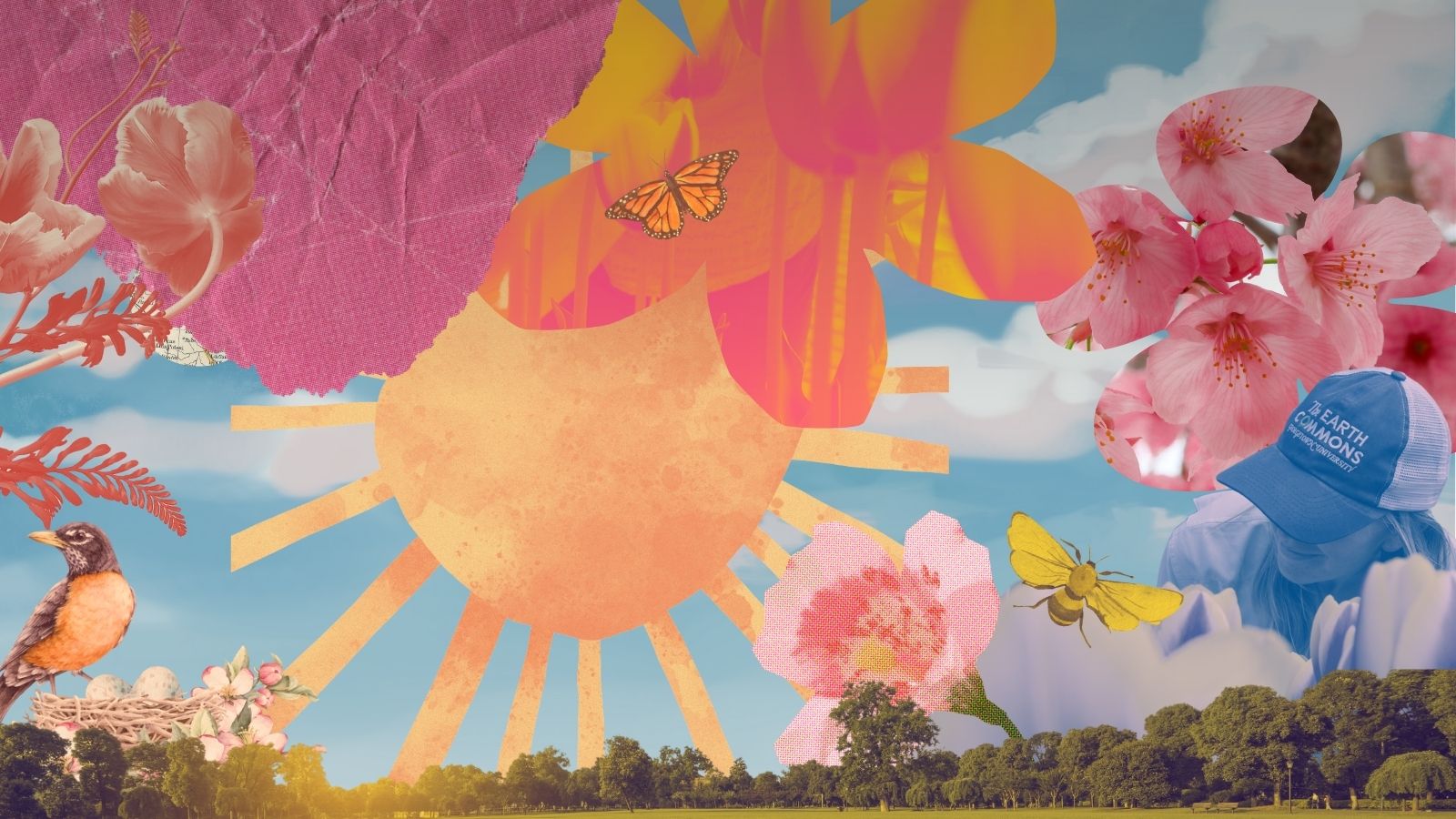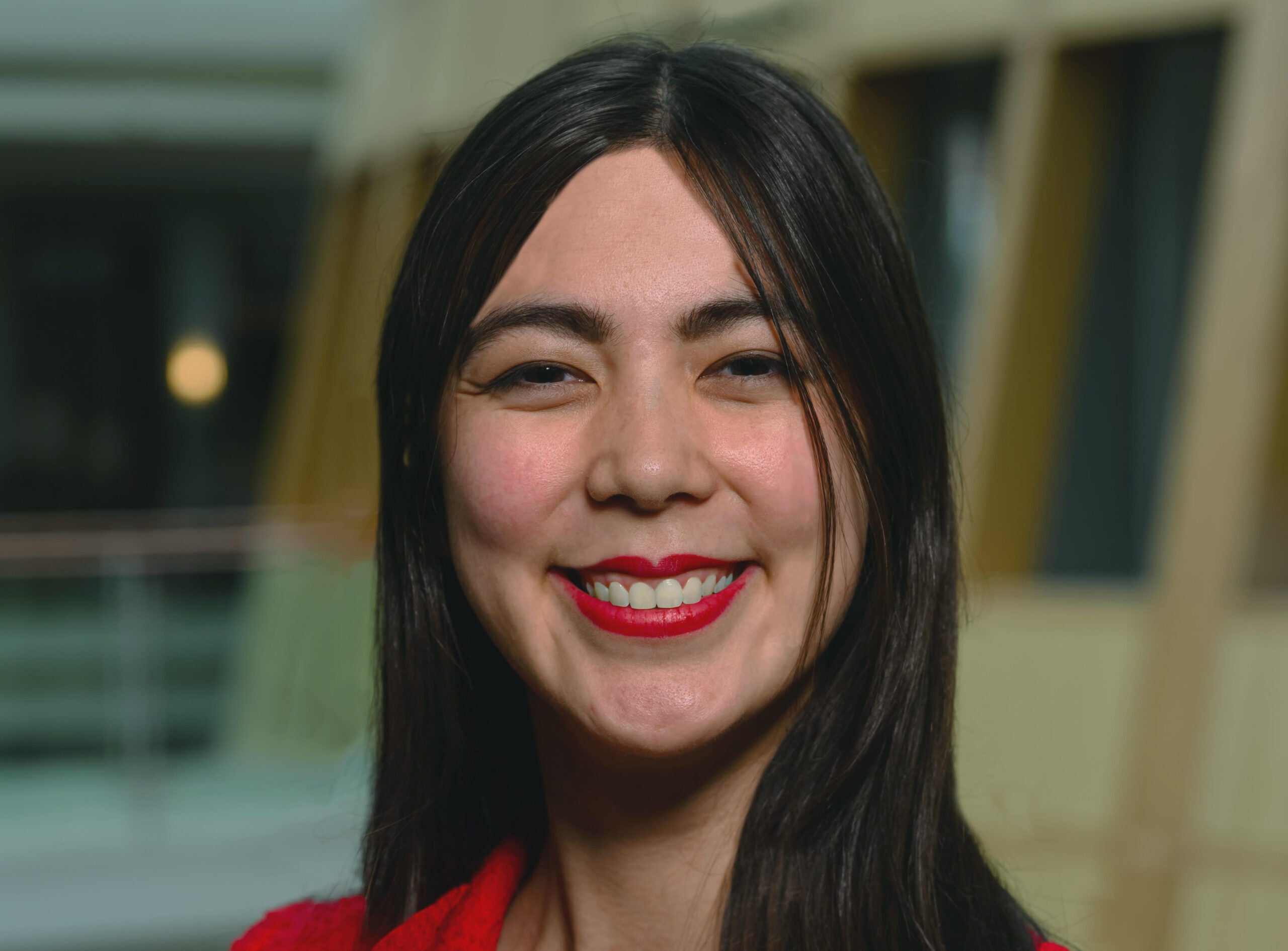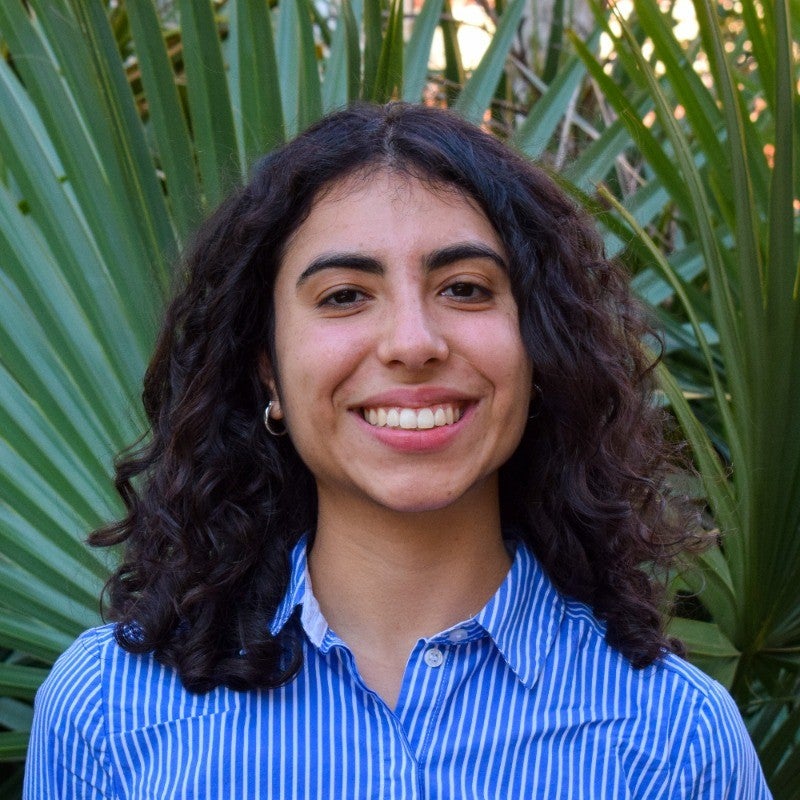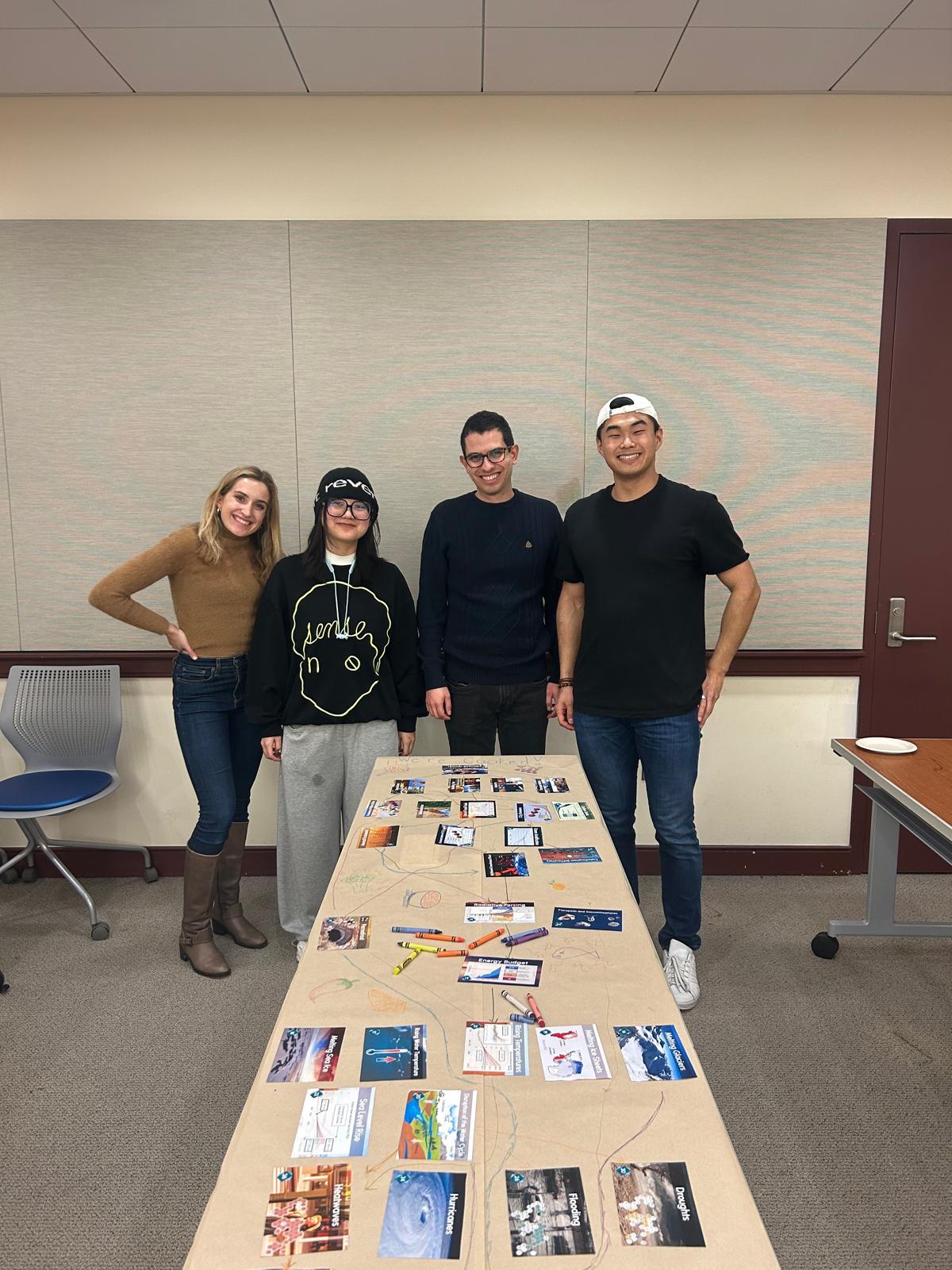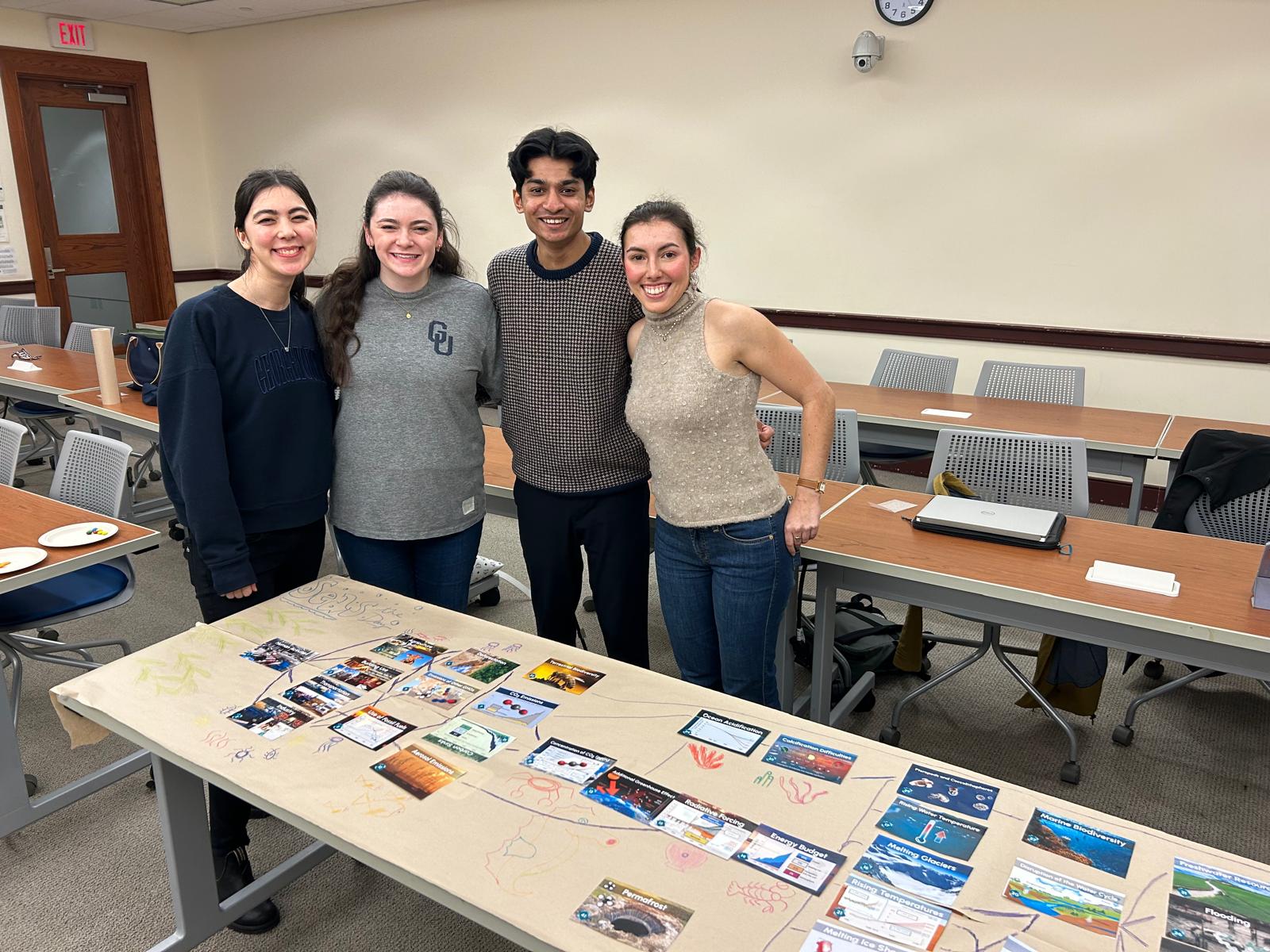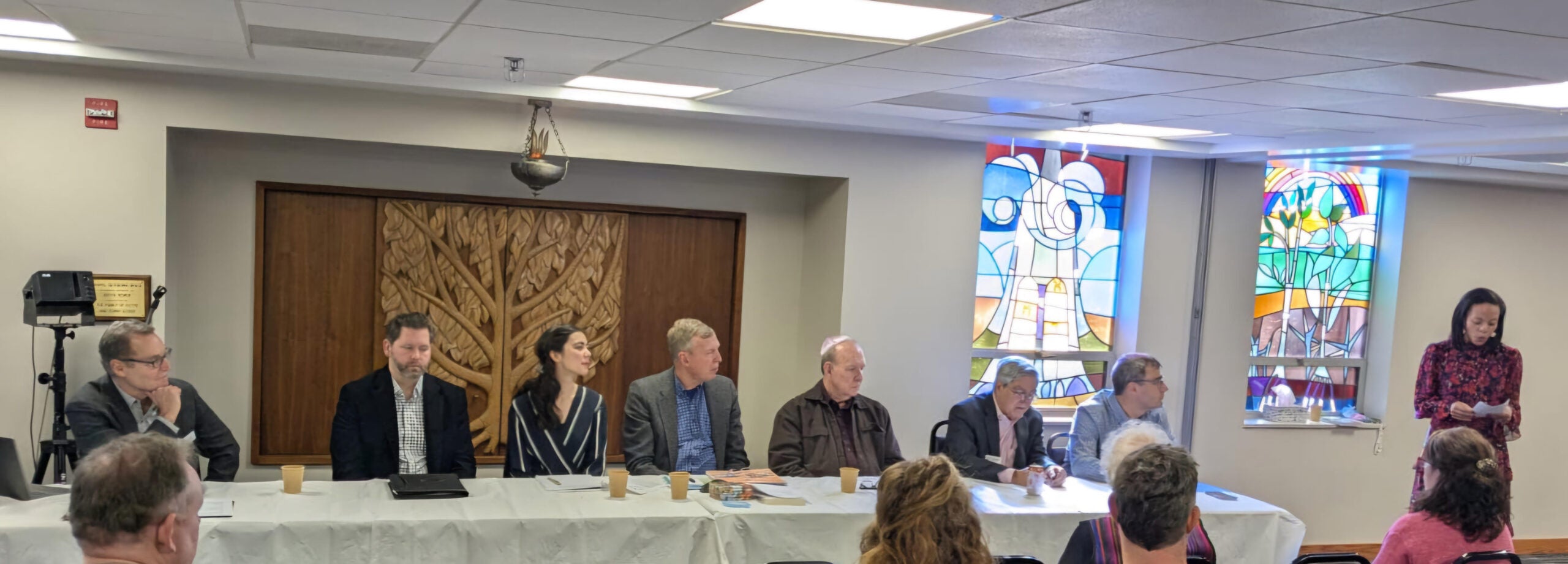“This is the first step toward creating meaningful change, both individually and collectively.”
Victoria Guillemot (MS-ESM ‘25)
How Grad Hoyas Care for Common Home
We interviewed students from Earth Commons graduate programs—the MS in Environment and Sustainability Management (MS-ESM), joint with the McDonough School of Business; and the MS in Environment and International Affairs (MS-EIA), joint with the School of Foreign Service—to learn more about how they Care for our Common Home outside of the classroom.
Victoria Guillemot
MS-ESM ‘25
Michelle Kolacz
MS-ESM ‘25
Karina Sarandrea
MS-EIA ‘25
At Georgetown, “Caring for Our Common Home” means taking action to protect the planet and the people most affected by climate change. Inspired by Pope Francis’ call for a new conversation about our future, we see sustainability as a shared responsibility. Whether it’s through research, student initiatives, or hands-on projects, we’re committed to making a real impact—because every action helps move us toward a more just and sustainable world.
Victoria Guillemot – (MS-ESM ‘25)
Victoria Guillemot (MS-ESM ’25) helps bring the Climate Fresk initiative to Georgetown, creating a space for interactive learning and dialogue about climate change. We spoke with Victoria to learn more about the workshop and its impact.
What is Climate Fresk, and what is the goal of it?
The Climate Fresk is an interactive workshop that helps people better understand the science behind climate change. Participants engage in a visual, hands-on activity to explore how different aspects of the climate system are interconnected and how human activities contribute to global warming. The main goal is to make complex climate science accessible and inspire action by showing how we’re all involved in both the challenges and the solutions.
End of carousel collection.
Why do you think initiatives like the Climate Fresk are important for building awareness or driving action on climate issues?
I believe initiatives like the Climate Fresk are key to raising awareness about climate change. They take complex scientific concepts and make them tangible, helping people connect the dots between their daily actions and the broader environmental picture. This is the first step toward creating meaningful change, both individually and collectively.
How has your work with the Climate Fresk impacted you personally or professionally?
For me, facilitating Climate Fresk workshops has been incredibly important. It has deepened my understanding of climate science and strengthened my ability to communicate these issues in a way that resonates with others. It has also reinforced how critical collaboration is in addressing climate change, as the issue is so complex and interconnected. This experience has been crucial in shaping how I think about sustainability and my role in driving meaningful change.
Michelle Kolacz (MS-ESM ‘25)
Michelle Kolacz (MS-ESM ‘25) is on the Community Impact team at Solar United Neighbors, helping individuals join together and fight for their energy rights. She also volunteers for several organizations (including Citizens’ Climate Lobby (CCL) and Go Electric DMV), uniting her various pursuits to drive climate action and positive impact.
One of the key learning outcomes for our degree is cultivating an understanding of how business operates and interacts within the context of environment and society. This systems-thinking approach has been a critical theme in many of our classes, teaching us how to consider the broader picture rather than looking at a single area or timeframe in isolation. Effective decision making relies on seeing the connections our world is made of. It also makes each small action feel more hopeful.
Michelle speaks at an Alexandria, VA event on a Go Solar panel at the Beth El Hebrew Congregation. Mayor Alyia Gaskins (far right)—a Georgetown alumna—was the keynote speaker.
This is meaningful because in the climate space it is easy to get overwhelmed when you think of the scale of our work and how much still needs to be done. Being able to see how one action might inspire more makes my efforts feel more impactful. This is how I have looked at my work at Solar United Neighbors (SUN), where I’ve mainly focused on solar education and Inflation Reduction Act storytelling. I help equip people with the knowledge to make informed decisions as consumers. I also share the stories of those who went solar, demystifying the process and helping make energy independence more accessible. I know that those who I support on their solar journey will in turn help and inspire others. It was a pleasant surprise to see this happen in real time, after one of the stories I conducted was featured in the news.
“Each of us making our own unique contribution gives me confidence that, together, we will create a meaningful impact on the world.”
Michelle Kolacz (MS-ESM ‘25)
I’ve also found it invigorating to identify opportunities to connect organizations to each other. When I learned about an interest area that overlapped between SUN and CCL, an organization that I volunteer with, I was able to facilitate key relationships. This led to an official letter campaign to support clean and resilient power in Virginia.
As I reflect on my time so far in this program, I appreciate the power of recognizing the interconnectedness of our systems, our actions, and our ability to unite people, organizations, and ideas. Understanding how individual action and collective actions can lead to larger shifts is both motivating and grounding. I am excited for the change that I know my classmates will lead across a diverse array of industries and sectors. Each of us making our own unique contribution gives me confidence that, together, we will create a meaningful impact on the world.
Karina Sarandrea (MS-EIA ‘25)
Karina Sarandrea is a collaborator in the environmental policy field and an avid international affairs student. Before starting at Georgetown, Karina was a Ruckelshaus Fellow at the Meridian Institute, where she worked on a variety of projects including those focused on US agriculture, international environmental crime, and greenhouse gas emissions modeling. She currently works as a consultant for the World Resources Institute and enjoys teaching yoga and tending to her cat Otto in her free time.
This past year, I helped the Nature Crime Alliance develop and release an index of tools that combat nature crime. The Nature Crime Alliance, hosted by the World Resources Institute, is a network of countries and global organizations dedicated to aiding the fight against all forms of illegal wildlife trafficking, logging, mining, land conversion, and crimes associated with fishing.
“I am immensely grateful for the professional and personal growth I have gained in the process.”
Karina Sarandrea (MS-EIA ‘25)
While working on the project, I had the opportunity to lead on design, data collection, web integration, and strategic communications for the tool, which will serve as a resource for Nature Crime Alliance members and all others in the field.
I am immensely grateful for the professional and personal growth I have gained in the process and look forward to showcasing the tool when it is publicly released in the coming months.

